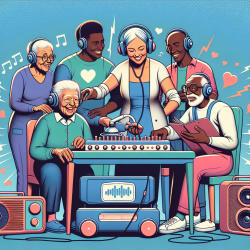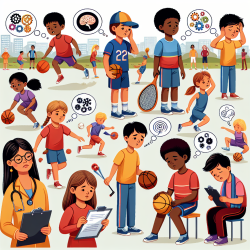Understanding the intricacies of how aging affects our ability to process sounds and comprehend speech is crucial for developing strategies to support the elderly, especially those with hearing impairments. The research paper "Psychoacoustics and Aging: Implications for Everyday Listening" by Brnce Schneider, PhD, offers valuable insights into the challenges faced by elderly listeners and suggests avenues for improving auditory skills in this demographic.
Aging impacts the auditory system in multiple ways, leading to difficulties in identifying, locating sound sources, and understanding speech in noisy environments. This deterioration can be attributed to anatomical, biomechanical, and physiological changes in the cochlea, affecting the auditory system's temporal and spectral resolution. Understanding these changes is vital for practitioners aiming to enhance the auditory skills of the elderly.
One significant finding from Schneider's research is the role of cochlear degeneration in elevating auditory thresholds and adversely affecting the auditory system's resolution. This degeneration leads to a loss of temporal resolution and a broadening of the auditory filter, making it challenging for elderly listeners to process speech, especially in noisy environments. These findings underscore the importance of early detection and intervention to mitigate the impact of presbycusis (age-related hearing loss) on speech comprehension.
Practitioners can implement several strategies to support elderly listeners, based on the outcomes of this research. First, employing auditory training programs that focus on improving temporal resolution and spectral resolution can be beneficial. These programs can include exercises designed to enhance the ability to discriminate between sounds of different frequencies and durations, which is crucial for understanding speech in complex auditory environments.
Second, the use of assistive listening devices that amplify sounds and reduce background noise can help elderly listeners better understand speech. These devices can be tailored to the specific hearing loss profile of the individual, providing customized support that addresses their unique challenges.
Third, encouraging further research into the effects of aging on the auditory system and the development of new technologies and therapies to support elderly listeners is crucial. As our understanding of psychoacoustics and aging deepens, we can develop more effective interventions to enhance the quality of life for the elderly through improved auditory skills.
In conclusion, the research on psychoacoustics and aging provides essential insights into the challenges faced by elderly listeners and offers a foundation for developing strategies to support their auditory skills. By focusing on early detection, auditory training, assistive technologies, and ongoing research, practitioners can make significant strides in helping elderly individuals navigate the complexities of auditory processing and speech comprehension in their daily lives.
To read the original research paper, please follow this link: Psychoacoustics and Aging: Implications for Everyday Listening.










